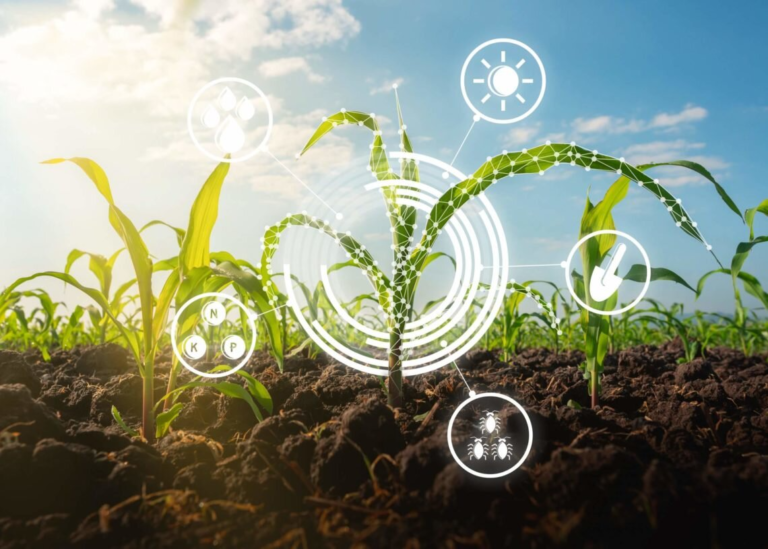Sustainable agriculture is more than just a buzzword—it’s a necessity for ensuring a healthy planet and a reliable food supply. Farmers, policymakers, and consumers across the United States are increasingly focusing on sustainable farming to address environmental concerns while maintaining economic viability. However, this shift comes with its own set of challenges and opportunities. In this blog, we’ll dive into the challenges associated with sustainable agriculture, the economic impact of sustainable agriculture, potential careers in sustainable agriculture, the 7 practices of sustainable agriculture, and the advantages of sustainable agriculture.
Challenges Associated with Sustainable Agriculture
While sustainable farming is the future, transitioning from conventional methods isn’t always easy. Here are some key challenges associated with sustainable agriculture:
- High Initial Costs – Sustainable farming methods often require investments in new technology, organic fertilizers, and renewable energy sources, which can be costly upfront.
- Limited Knowledge & Training – Many farmers lack access to education and training on sustainable practices.
- Climate Change – Unpredictable weather patterns, droughts, and floods make farming more difficult.
- Soil Degradation & Water Scarcity – Managing soil fertility and ensuring water availability is a constant struggle.
- Resistance to Change – Some farmers are hesitant to shift from conventional to sustainable methods due to uncertainties about profitability and effectiveness.
Economic Impact of Sustainable Agriculture
The economic impact of sustainable agriculture is significant, influencing everything from job creation to food prices. Here’s how:
- Long-term Cost Savings – Although initial costs can be high, sustainable practices reduce dependency on expensive chemical fertilizers and pesticides.
- Market Demand – Consumers in the U.S. are increasingly willing to pay a premium for organic and sustainably grown products.
- Job Creation – The sector generates employment in areas like organic farming, agroforestry, and conservation management.
- Government Support – Farmers can benefit from grants, subsidies, and incentives for implementing eco-friendly practices.
- Improved Food Security – Sustainable farming ensures a more resilient food supply by reducing dependence on harmful farming techniques.
Careers in Sustainable Agriculture
If you’re passionate about the environment and food production, there are plenty of careers in sustainable agriculture to explore:
- Sustainable Farm Manager – Oversees eco-friendly farm operations and implements best practices.
- Agronomist – Works on improving soil health and plant productivity.
- Soil Scientist – Studies soil composition and advises on conservation methods.
- Conservation Specialist – Helps implement policies for sustainable land and water use.
- Agroforestry Expert – Focuses on integrating trees and shrubs into farming landscapes.
- Sustainability Consultant – Advises farms and agribusinesses on sustainable solutions.
- Agricultural Engineer – Develops technology to support efficient and sustainable farming.
7 Practices of Sustainable Agriculture
To make farming more eco-friendly and productive, here are the 7 practices of sustainable agriculture:
- Crop Rotation & Diversification – Helps maintain soil fertility and reduce pests.
- Agroforestry & Permaculture – Combines trees and crops for a balanced ecosystem.
- Organic Farming – Eliminates synthetic fertilizers and pesticides.
- Integrated Pest Management (IPM) – Uses natural methods to control pests.
- Water Conservation – Includes rainwater harvesting and efficient irrigation.
- Soil Health Management – Practices like composting and reduced tillage improve soil quality.
- Renewable Energy Use – Solar panels, wind turbines, and bioenergy reduce carbon footprints.
Advantages of Sustainable Agriculture
Embracing sustainability in farming has numerous benefits. Here are some major advantages of sustainable agriculture:
- Environmental Benefits – Reduces pollution, enhances biodiversity, and improves soil health.
- Economic Benefits – Leads to better profits through lower input costs and higher market value.
- Social Benefits – Improves rural communities by creating sustainable jobs and promoting food security.
- Resilience & Sustainability – Prepares farms to handle climate change and future food demands.
Conclusion
Sustainable agriculture is not just about farming; it’s about ensuring a better future for our planet and communities. While the challenges associated with sustainable agriculture can be daunting, the economic impact of sustainable agriculture proves it’s a worthwhile investment. With numerous careers in sustainable agriculture, those passionate about the field have plenty of opportunities. By adopting the 7 practices of sustainable agriculture, we can work towards a greener, more prosperous future. And with the many advantages of sustainable agriculture, it’s clear that this approach is the key to a sustainable food system in the United States.
Are you ready to support sustainable farming? Whether you’re a farmer, entrepreneur, or consumer, your choices make a difference!
